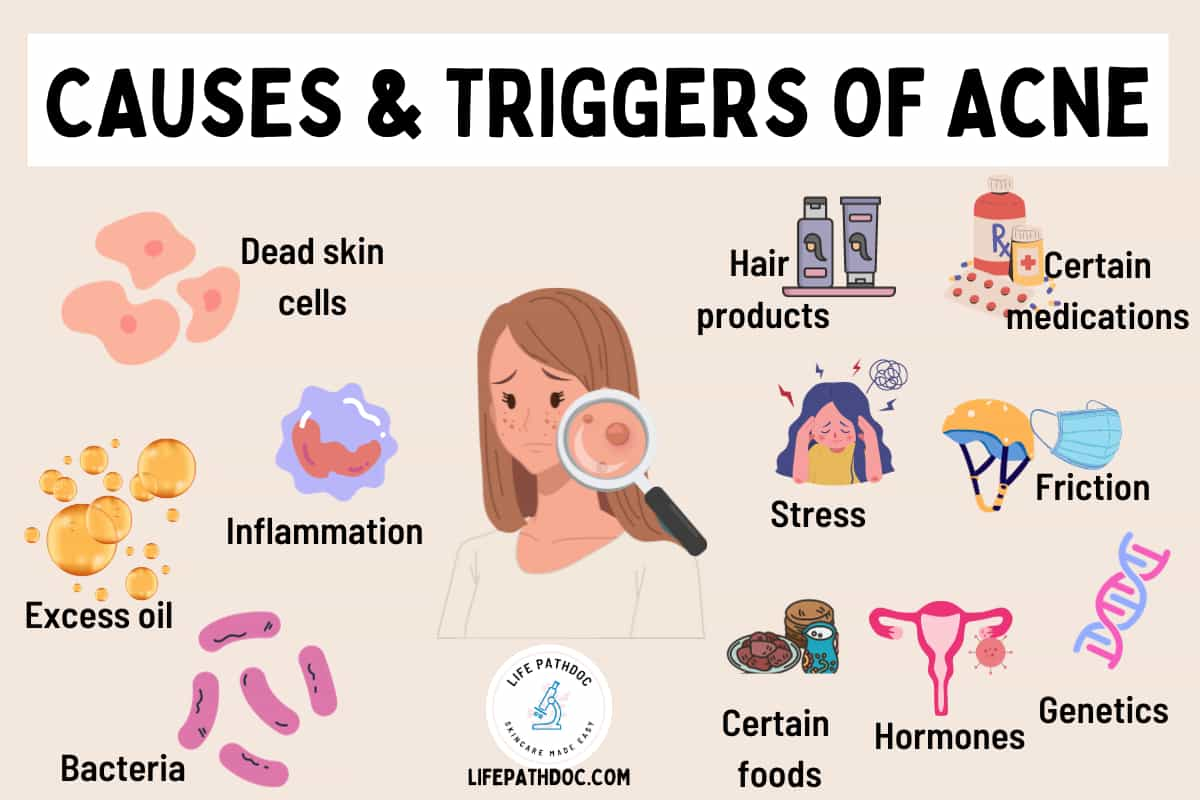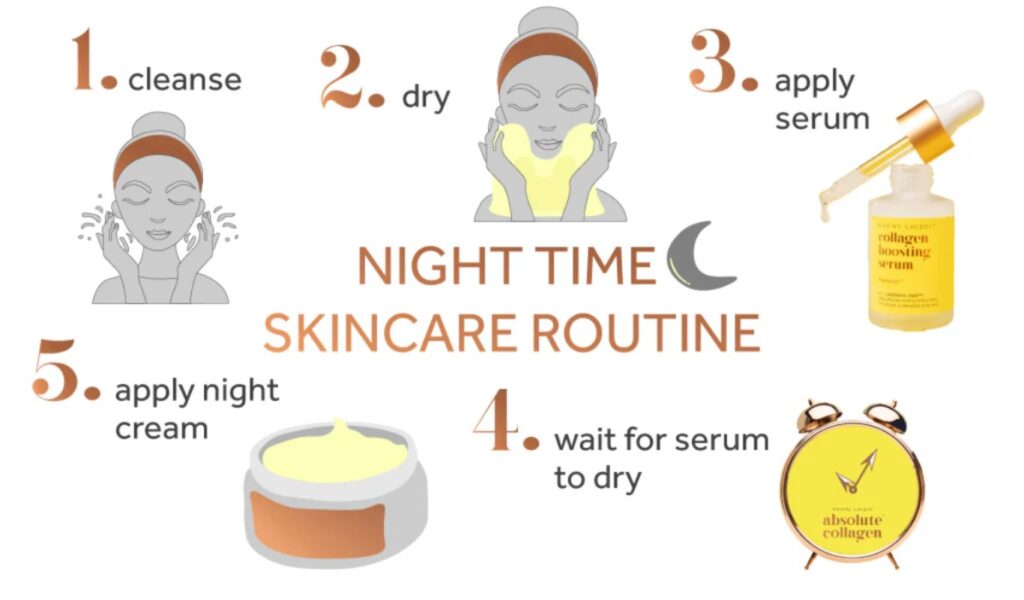Hey there, skincare friends! As someone who’s battled acne for years and tested countless products, I know exactly how overwhelming it can be to find the right face serum when you’re dealing with breakout-prone skin. That’s why I’ve put together this comprehensive guide to help you navigate the sometimes confusing world of serums and find your perfect match. Let’s dive in!
Table of Contents
Why Your Acne-Prone Skin Needs a Serum
Before we get into the specifics, let’s talk about why serums are such game-changers for acne-prone skin. Unlike moisturizers or cleansers, serums are highly concentrated formulations with smaller molecules that can penetrate deeper into your skin. They’re basically your skin’s personal superhero squad, delivering powerful active ingredients exactly where they’re needed most.
For those of us dealing with acne, the right serum can:
- Target breakouts without over-drying your skin
- Help fade those stubborn post-acne marks
- Balance oil production
- Strengthen your skin barrier
- Prevent future breakouts
Key Ingredients to Look For
Salicylic Acid (BHA)
This is my personal holy grail ingredient for acne-prone skin. As a beta-hydroxy acid, salicylic acid is oil-soluble, meaning it can get deep into your pores to:
- Dissolve excess oil and dead skin cells
- Reduce inflammation
- Prevent pores from getting clogged
- Fight existing breakouts
Look for concentrations between 0.5-2% for daily use. If you’re new to salicylic acid, start with a lower concentration and work your way up.
Niacinamide
This powerhouse ingredient (also known as Vitamin B3) is like a gentle friend who helps with everything. It:
- Regulates oil production
- Reduces inflammation
- Improves skin barrier function
- Fades post-acne marks
- Works well with other active ingredients
The sweet spot for niacinamide concentration is typically 2-5%, though some products go up to 10%.
Vitamin C
While you might think vitamin C is just for anti-aging, it’s actually fantastic for acne-prone skin because it:
- Helps fade post-acne marks
- Fights inflammation
- Provides antioxidant protection
- Boosts collagen production
Look for stable forms like L-ascorbic acid (15-20%), sodium ascorbyl phosphate, or ethyl ascorbic acid.
Retinoids
Whether you opt for over-the-counter retinol or prescription-strength tretinoin, retinoids are incredible for:
- Preventing clogged pores
- Speeding up cell turnover
- Reducing inflammation
- Improving skin texture
- Fighting both acne and aging
Start with a lower concentration (0.025-0.5%) and gradually increase as your skin tolerates it.
Azelaic Acid
This under-appreciated ingredient deserves more attention! Azelaic acid:
- Kills acne-causing bacteria
- Reduces inflammation
- Fades hyperpigmentation
- Is gentle enough for sensitive skin
Look for products with 10% concentration for over-the-counter options.
Best Serums by Skin Type
For Oily, Acne-Prone Skin
If you’re dealing with excess oil and frequent breakouts, look for:
- Water-based or gel serums
- Higher concentrations of salicylic acid
- Niacinamide-focused formulations
- Oil-free formulas
Avoid:
- Heavy, oil-based serums
- Products with comedogenic ingredients
- Overly rich formulations
For Combination, Acne-Prone Skin
When you’re dealing with both oily and dry areas:
- Look for balanced formulations
- Consider using different serums for different areas
- Focus on barrier-supporting ingredients
- Choose products with multiple benefits
For Dry, Acne-Prone Skin
Yes, you can have dry skin and still get acne! Look for:
- Hydrating serums with acne-fighting ingredients
- Products containing hyaluronic acid
- Gentle exfoliating formulations
- Barrier-supporting ingredients
For Sensitive, Acne-Prone Skin
If your skin is easily irritated:
- Choose gentle formulations
- Look for soothing ingredients like centella asiatica
- Start with lower concentrations of active ingredients
- Avoid common irritants like fragrance
How to Layer Your Serums
One of the most common questions I get is about how to properly layer serums. Here’s your foolproof guide:
- Cleanse your face thoroughly
- Apply water-based serums first (like hyaluronic acid)
- Follow with treatment serums (acne-fighting ingredients)
- Use oil-based serums last
- Finish with moisturizer and sunscreen (during the day)
Pro tip: Wait about 30 seconds between layers to allow each product to absorb properly.
Common Mistakes to Avoid
- Using Too Many Active Ingredients I get it – when you’re dealing with acne, you want to throw everything at it. But using too many active ingredients can irritate your skin and make things worse. Start with one active ingredient and slowly introduce others.
- Skipping Patch Testing Always patch test new serums on a small area of your face for at least 24 hours. This helps prevent major reactions and helps you identify what works (and what doesn’t) for your skin.
- Inconsistent Use Serums need time to work their magic. Use them consistently for at least 8-12 weeks before deciding if they’re effective.
- Forgetting Sunscreen Many acne-fighting ingredients make your skin more sensitive to sun damage. Always use sunscreen during the day!
- Over-Exfoliating Using too many exfoliating products can damage your skin barrier and make acne worse. Stick to 2-3 times per week unless directed otherwise by your dermatologist.
Building Your Serum Routine
Morning Routine
- Gentle cleanser
- Hydrating serum (if needed)
- Vitamin C serum
- Niacinamide serum (if using)
- Moisturizer
- Sunscreen
Evening Routine
- Double cleanse
- Treatment serum (salicylic acid or retinoid)
- Hydrating serum
- Moisturizer
Special Considerations
During Breakouts
When you’re actively breaking out:
- Focus on anti-inflammatory ingredients
- Don’t overload your skin with products
- Consider spot treatments
- Keep your routine simple
For Post-Acne Marks
To fade those stubborn marks:
- Use vitamin C in the morning
- Apply retinoids at night
- Include niacinamide in your routine
- Don’t skip sunscreen
Hormonal Acne
If you’re dealing with hormonal breakouts:
- Consider azelaic acid
- Use gentle exfoliants
- Focus on barrier repair
- Be patient with results
When to See a Dermatologist
While serums can be incredibly effective, sometimes you need professional help. Consider seeing a dermatologist if:
- Your acne is severe or cystic
- Over-the-counter products aren’t helping
- You’re developing scars
- Your acne is affecting your mental health
- You’ve tried multiple routines without success
Tips for Success
- Start Slow When introducing new serums, start with 2-3 times per week and gradually increase frequency.
- Listen to Your Skin Your skin will tell you what it needs. If something feels irritating, take a break.
- Keep a Skincare Journal Track which products you use and how your skin reacts. This helps identify patterns and what works best for you.
- Be Patient Results take time. Give new products at least 8-12 weeks to show results.
- Stay Hydrated Even oily, acne-prone skin needs hydration. Don’t skip moisturizer!
Budget-Friendly Options
You don’t need to break the bank to find effective serums. Look for:
- Brands with simple, effective formulations
- Products with fewer but high-quality ingredients
- Sales and value sizes
- Multi-tasking products
The Bottom Line
Finding the right serum for acne-prone skin is a journey, not a destination. What works for someone else might not work for you, and that’s okay! The key is to:
- Understand your skin type and needs
- Start with basic, proven ingredients
- Be patient and consistent
- Listen to your skin
- Don’t be afraid to adjust your routine
Remember, healthy skin is a marathon, not a sprint. Focus on building a sustainable routine that works for your lifestyle and skin needs. And most importantly, be kind to yourself along the way. Clear skin is possible, and you’re already taking the right steps by educating yourself about proper skincare!
Final Thoughts
I hope this guide has helped demystify the world of serums for acne-prone skin. Remember that everyone’s skin is different, and what works for one person might not work for another. The key is to be patient, consistent, and gentle with your skin.
Have you tried any of these serums? What has worked best for your acne-prone skin? Share your experiences and questions in the comments below – I’d love to hear from you!
Note: While this guide is based on research and personal experience, it’s always best to consult with a dermatologist for personalized advice, especially if you have severe acne or sensitive skin.












